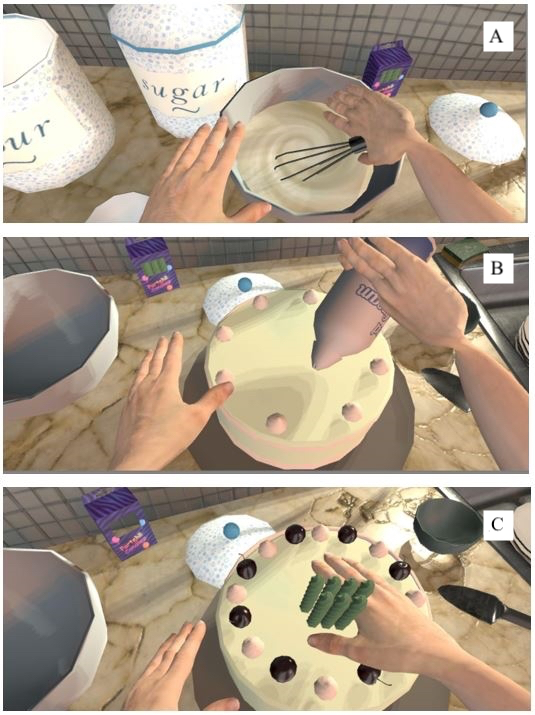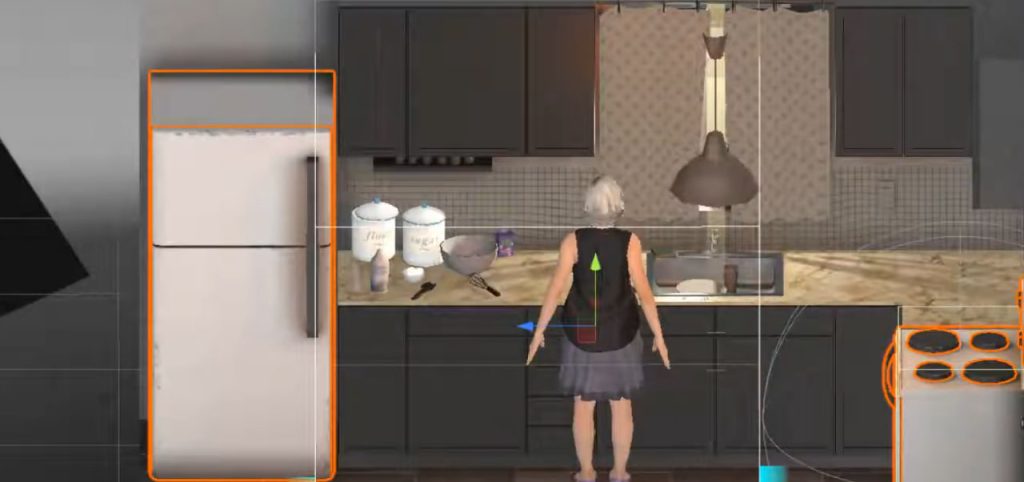AS IF: A VR Empathy Game
Weina Jin, Servet Ulas, Xin Tong, Dr.Diane Gromala, and Dr. Chris Shaw
Qualitative research suggests that VR is promising in enabling us to experience the world as if we’re literally in a different or virtual body. We contend that inhabiting an avatar of a person who has persistent pain helps us better empathize with what that must be like.


